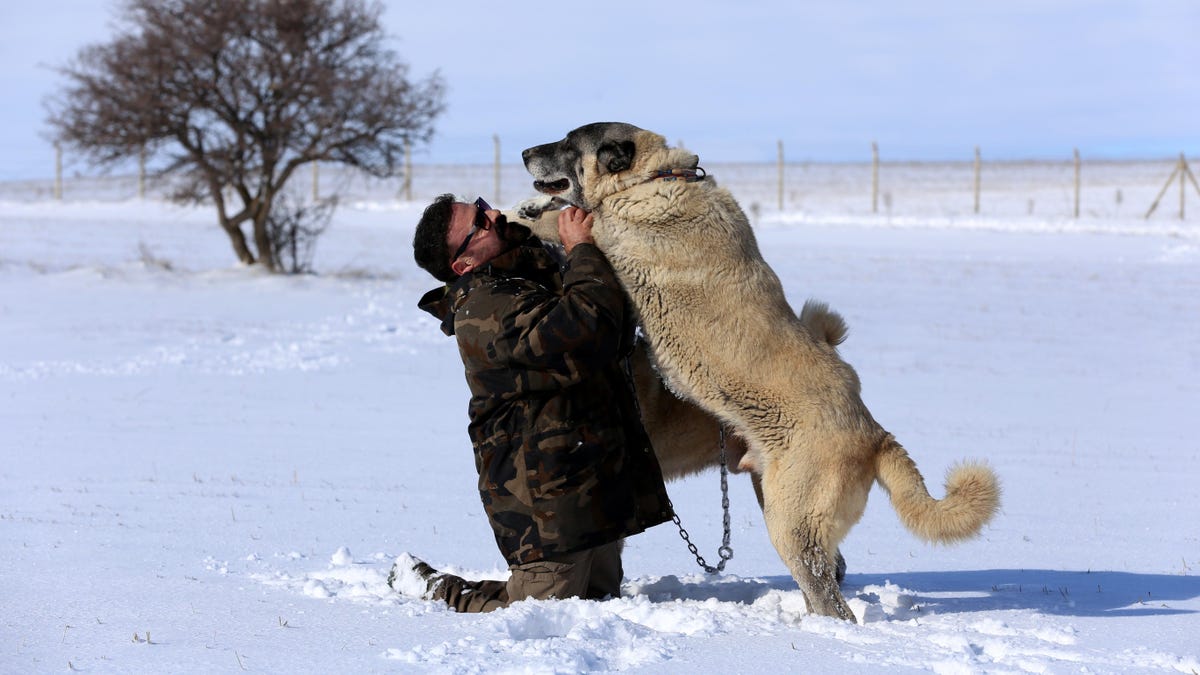The animal pharmaceutical company Loyal announced that the FDA has accepted the development of a drug that could extend the lifespans of large and giant dog breeds.
The drug is codenamed LOY-001. In a blog post published today, Celia Halioua, the founder and CEO of Loyal, said that the company earned the FDA’s acceptance of the drug. “In regulatory parlance,” Halioua wrote, “we have completed the technical effectiveness portion of our conditional approval application for LOY-001’s use in large dog lifespan extension.”
Giant dogs are the ones that might make you gawk on the street: Great Danes, Irish wolfhounds, and Anatolian shepherds to name a few. But most of these massive dogs average a very short lifespan—about 9 years for a Great Dane, and just 6 or 7 years for an Irish wolfhound.
Small dogs can live three times as long as the shortest-lived giant dog breeds, according to the American Kennel Club; the dogs die mostly from cancer and age-related illnesses, which indicate that larger dogs tend to age faster than their smaller compatriots.

As previously reported by Gizmodo in our list of unhealthy dog breeds, giant breeds are vulnerable to skeletal problems like hip dysplasia, a deformity that leads to chronic arthritis. (Though the most common cause of death in Irish wolfhounds is cancer, followed by cardiovascular disease.)
“The extreme phenotypic variety found in dogs is not ‘natural’ — it’s the result of intensive breeding by humans to create dogs that excelled at tasks such as herding, protection, and companionship,” Brennen McKenzie, Loyal’s Director of Veterinary Medicine, said in a press release. “At Loyal, we see the short lifespan of big dogs not as inevitable, but as a genetically-associated disease caused by historical artificial selection, and therefore amenable to targeting and treatment with a drug.”
According to Halioua’s post, breeding large dogs for their size caused elevated levels of IGF-1, a hormone that promotes cell growth. Though this hormone contributes to the animals’ great size, it also hastens their aging. LOY-001 reduces the levels of IGF-1 in large and giant dog breeds, extending healthy life spans.
The drug is an injectable that would be administered by a vet every three to six months. Loyal is also developing a pill that would address the same issue, codenamed LOY-003. According to the release, LOY-001 could hit the shelves by 2026, pending FDA approval of data provided to them by Loyal.
The road to an FDA-approved drug is long, but there’s reason to be optimistic about the currently short lives of big dogs.
More: Why Purebred Dogs Are Sick, Miserable, and Ugly

